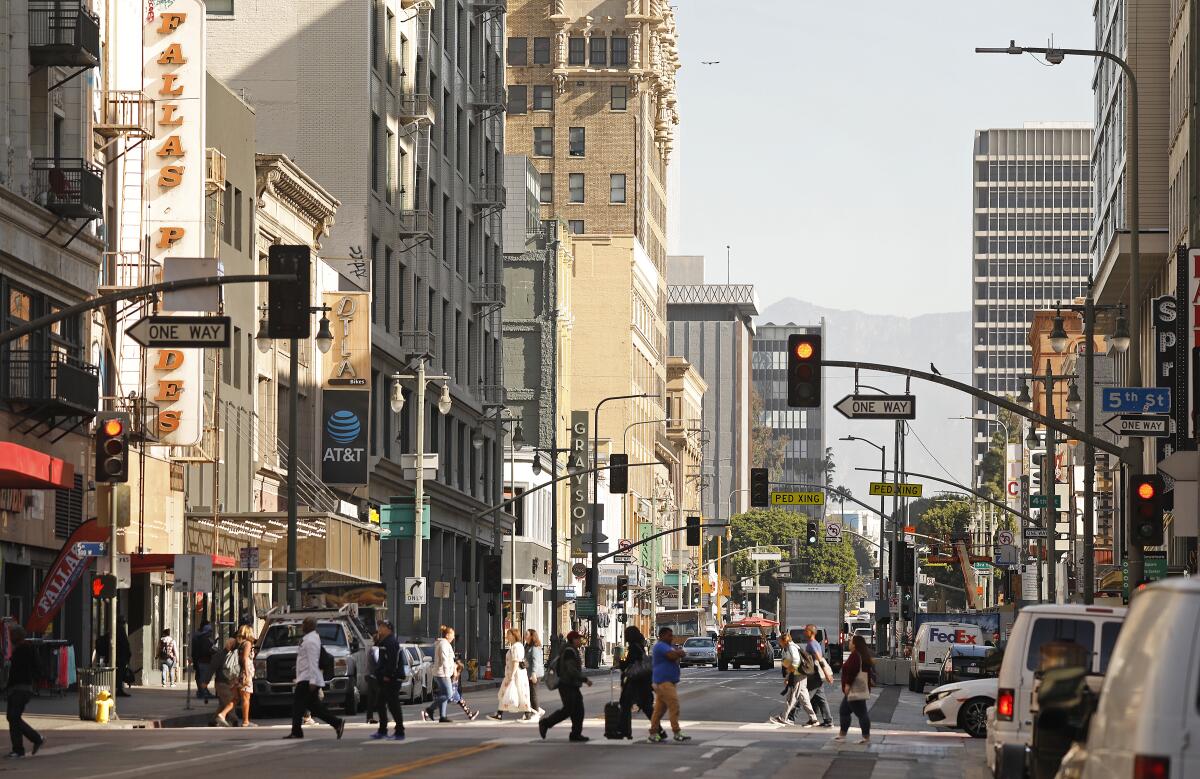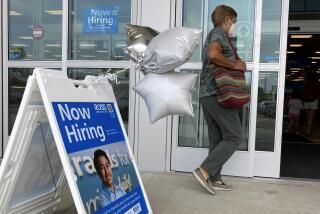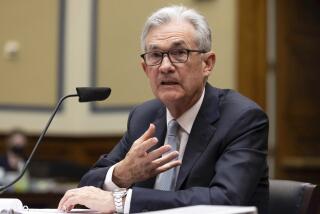U.S. economy is now in recession, UCLA Anderson Forecast says

- Share via
Forget predictions that the U.S. economy will enter a recession this year due to the coronavirus pandemic — the UCLA Anderson Forecast says it has happened already.
On Monday, the school revised a forecast it issued just last week that stopped short of predicting a recession. The revised version says the economy has already stopped growing and will remain in recession through the end of September.
This is the first time in the 68-year history of the forecast that it has been updated before its planned quarterly update.
Economists at the UCLA Anderson School of Management — the university’s graduate business school — said they revised the forecast after incorporating a review of how the 1957–58 H2N2 influenza pandemic affected the U.S. economy.
The year started solidly, but the forecast predicted that rapid effects on the economy from the virus would slow first-quarter economic growth to a rate of 0.4% and that the economy would shrink at a 6.5% rate in the second quarter and a 1.9% rate in the third quarter.
Assuming the pandemic ends this summer and supply chains are restored, the forecast predicts the resumption of normal economic activity and an economic growth rate of 4% in the fourth quarter.
Because California has a higher proportion of its economic activity linked to tourism and transpacific transportation, the forecast predicts that the recession will be slightly more severe in the state.
California is expected to shed more than 280,000 of its payroll jobs, with leisure, hospitality and transportation sector jobs accounting for more than one-third of those. That would drive up the unemployment rate to 6.3% by the end of this year, with effects continuing into 2021, when the unemployment rate is expected to average 6.6%.
In the forecast released last week, UCLA economists tried to take into consideration the economic fallout from the coronavirus outbreak. That forecast had still expected U.S. GDP to grow modestly in the second and third quarters.
It said then its predictions were based on the midpoint between the coronavirus having a very minimal effect and, on the other end, the virus causing a recession. It also said the strength of the California economy would help buffer the state from short-term interruptions in supply chains and travel.
Since then, the disruptions to the economy have jumped.
Times staff writer Margot Roosevelt contributed to this report.
More to Read
Inside the business of entertainment
The Wide Shot brings you news, analysis and insights on everything from streaming wars to production — and what it all means for the future.
You may occasionally receive promotional content from the Los Angeles Times.











